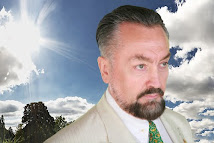Everyone who examines birds realizes that like other living things, they possess perfect anatomical systems. This leads to the inevitable conclusion that they are the products of flawless creation. Yet proponents of the theory of evolution are reluctant to admit this. According to Darwin's theory of evolution, every living species evolved from a single common ancestor. This scenario means that the 100 million or so known species must all be descended from earlier versions of one another.1 To account for the origin and astounding variety of plants and animals, evolutionists propose two mechanisms: natural selection and mutations. (For detailed information, see Harun Yahya, The Evolution Deceit, United Kingdom: Ta-Ha Publishers Ltd. and Darwinism Refuted, New Delhi: Goodword Books Pvt. Ltd. November 2002.)
The more those with common sense examine life forms, the more they will realize the nonsensical nature of the theory of evolution, which bases the origins of life on chance. Perceiving design but calling it purposeless, seeing order but calling it accidental, is nothing more than a deliberate denial of the facts. At the root of this denial lie evolutionists' devotion to materialist philosophy and their bigoted reactions against the fact of creation. Rather than admit their Creator's existence, evolutionists prefer to believe that blind chance is a mighty creative force and that this concept-an expression of purposeless, unconscious happenstance-can perform miracles. But the distorted nature of this belief is easy to see: If you strew the components of an airplane on the ground, random forces such as wind, lightning, rain and earthquakes can never make them combine into a complete, functional aircraft. In addition, all the components in this example have already been created to be mutually compatible. Nonetheless, no matter how long one waits it is impossible for the parts to assemble themselves into a complete model. This finished product can come into being only if a conscious entity assembles all the components. Yet according to evolutionists, chance is able to produce systems incomparably more perfect than this example, as well as the most delicate balances. The logical contradiction here is obvious for anyone to see. Every living thing is a unique marvel of creation. The proposed evolutionary mechanisms, on the other hand, lend no support to evolutionist claims. The first of these mechanisms-natural selection-assumes that those living things will survive that are best adapted to the challenges of the environment in which they live; while those unable to adapt will die out and disappear. According to evolutionists, this unconscious, automatic mode of elimination endows surviving individuals with ever-more complex organs and systems, but this claim has no valid proof or scientific basis. Observation has shown that natural selection serves only to weed out unfit individuals, but that there is no question of it endowing survivors with new organs and systems. The well-known biologist D'Arcy Wentworth Thompson summarizes this point: ... We see in natural selection is not to create but to destroy—to weed, to prune, to cut down and to cast into the fire.2
Claims that evolution occurs by means of natural selection are invalid, because: 1) Natural selection cannot plan or envisage an organism's future needs, and 2) Mutations can never endow a beneficial gain that leads to progress. Professor John W. Oller of the University of New Mexico refers to the illogical nature of this claim of development through mutation: Accidental design adjustments, as necessary for general evolution, are logical disasters. Random mutations from radiation, replication errors, or other proposed sources, rarely result in viable design adjustments, never in perfect more advanced designs.4Suppose you have determined that your life would be much more efficient if you had heat receptors in your body, or have felt the need for some other organ or ability that you think will confer an important advantage. Can you bring this about in your own body, by yourself? Could you bring into being a new organ or system that functions in a coordinated manner with immaculate timing, with all the other organs in your body, never making an error, that protects you by taking all the precautions you need and constantly strives to be beneficial to you? Could you then encode the proper genetic codes in your DNA so as to transmit this change to later generations?
As a result, it is impossible for one living species to develop into a bird, with its own unique features including that of flight, by any so-called evolutionary mechanism, or for birds to evolve into still other living species. The infinite variety among living things is just one indication of the infinite knowledge and creative artistry of Allah. In order to deny this, evolutionists hide behind unrealistic explanations. Over the last 20 years, when the complexity of life has become ever more clearly understood, an increasing number of scientists have reacted against the "chance dogma" supported by the theory of evolution. When asked about the dilemmas facing the theory of evolution, for example, Michael Denton, a molecular biologist at the University of Otago in New Zealand, criticizes the claims made for random mutations: The most serious objection I have is with the nature of mutation. Darwinism is based on the idea that all the mutations which have been selected during the course of evolution were, when they initially occurred, entirely random. Mutations are random... This is the essential bedrock of Darwinism. The mutational input into living things is, as it were, at random. | ||||
DOCUMENTARY - THE MIRACLE IN BIRDS
FOREWORD
Kaydol:
Kayıt Yorumları (Atom)











Hiç yorum yok:
Yorum Gönder